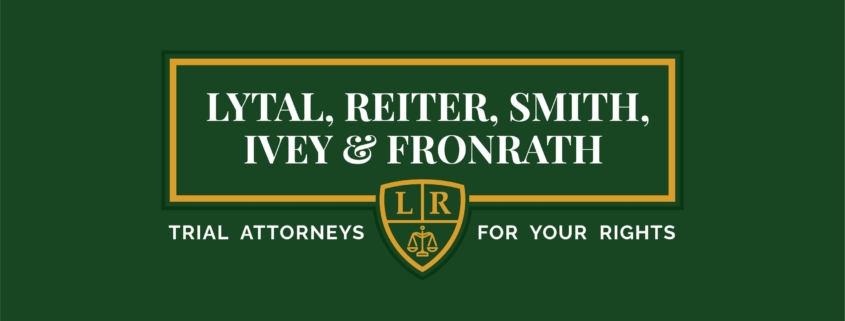Anesthesia malpractice awareness: What it is and how you might have a case
Anesthesia malpractice occurs when an anesthesiologist, nurse anesthetist, or other medical provider makes a preventable error before, during, or after administering anesthesia, resulting in harm to the patient. These errors can happen in hospitals, surgical centers, and even dental offices.
While some complications are unavoidable, malpractice arises when a medical provider fails to meet the accepted standard of care. Anesthesia-related injuries can include brain damage, organ failure, paralysis, and wrongful death.
At Lytal, Reiter, Smith, Ivey & Fronrath, our West Palm Beach anesthesia error lawyers are dedicated to holding negligent medical professionals accountable and helping victims seek justice. If you or a loved one suffered an injury due to an anesthesia error, understanding your legal options is the first step toward obtaining compensation.
Common types of anesthesia errors
1. Dosage errors
- Administering too much anesthesia can result in oxygen deprivation, brain damage, or fatal complications.
- Administering too little anesthesia may cause anesthesia awareness, where a patient regains consciousness during surgery but is unable to move or communicate.
2. Failure to monitor the patient
Anesthesiologists must continuously monitor a patient’s vital signs. Failure to recognize complications such as oxygen deprivation or irregular heart rhythms can lead to serious injury or death.
3. Improper intubation
Anesthesiologists are responsible for securing the patient’s airway. If intubation is delayed or performed incorrectly, it can result in:
- Asphyxiation
- Oxygen deprivation
- Internal injuries to the throat or lungs
4. Failure to review medical history
Before administering anesthesia, medical providers must review a patient’s history to check for allergies, pre-existing conditions, or medication interactions. Neglecting this step can result in severe allergic reactions, cardiac arrest, or other complications.
5. Post-operative negligence
Some anesthesia-related injuries occur after surgery due to improper monitoring. Failing to recognize signs of distress, such as difficulty breathing or internal bleeding, can have fatal consequences.
Related article:
How do you prove anesthesia malpractice?
To establish a valid anesthesia malpractice claim, the following elements must be proven:
1. Duty of care
The medical provider had a legal obligation to adhere to accepted standards of care when administering anesthesia.
2. Breach of duty
The provider failed to uphold this standard, either by making an error in administering anesthesia or by failing to monitor the patient properly.
3. Causation
The provider’s negligence directly caused harm to the patient, such as brain damage, respiratory failure, or wrongful death.
4. Damages
The patient suffered economic and non-economic losses, such as medical bills, lost wages, pain and suffering, or disability.
What compensation can you recover?
Victims of anesthesia malpractice may be entitled to compensation for:
- Medical expenses – Emergency care, hospitalization, rehabilitation, and long-term treatment.
- Lost wages – Compensation for missed work or diminished earning capacity due to permanent injury.
- Pain and suffering – Compensation for physical pain, emotional distress, and reduced quality of life.
- Wrongful death damages – If a loved one died due to anesthesia malpractice, surviving family members may file a wrongful death lawsuit under Florida Statutes § 768.21.
Florida’s medical malpractice laws
Florida has specific laws governing medical malpractice cases:
- Statute of limitations: Under Florida Statutes § 95.11(4)(b), victims have two years from the date of the injury (or discovery of the malpractice) to file a lawsuit.
- Pre-suit requirements: Florida law requires claimants to provide notice of intent before filing a lawsuit, including an expert medical opinion verifying that malpractice occurred (Florida Statutes § 766.106).
Due to these legal complexities, consulting an experienced medical malpractice attorney as soon as possible is essential.
How Lytal, Reiter, Smith, Ivey & Fronrath can help
Anesthesia malpractice cases require extensive medical and legal expertise. At Lytal, Reiter, Smith, Ivey & Fronrath, we have a strong track record of fighting for victims of medical negligence and securing significant settlements.
If you or a loved one suffered due to an anesthesia error, contact us today for a free consultation.
We are here to help you pursue justice and the compensation you deserve.




